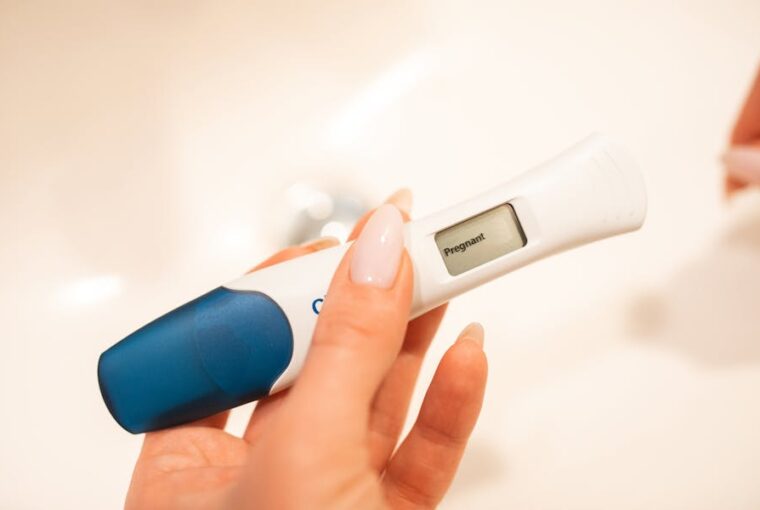Hearing tests are important diagnostic tools that can detect hearing loss or other issues that affect your ability to hear sounds clearly. This article will explain what a hearing test involves, the different types of hearing tests available, and the reasons why your doctor may recommend getting your hearing tested.
What happens during a hearing test? In most cases, it is a fairly simple series of checks.
Basic Hearing Test
A basic hearing test, called a pure tone audiometry test, is the most common type of hearing assessment. During the test:
- You wear a pair of headphones and sit in a quiet room
- Your examiner will play a series of quiet beeping sounds at different pitches into one ear at a time
- You raise your hand or press a button each time you hear the tone
- The results are plotted on a graph called an audiogram that shows the quietest sounds you can hear at different frequencies or pitches
This test allows your doctor to determine any hearing loss in decibels. It also shows if you have more difficulty hearing particular frequency sounds.
Speech Recognition Testing
You may also undergo speech recognition threshold testing in which you repeat words at increasing volumes to determine your speech recognition ability. Understanding speech requires detecting subtler sound changes than pure tones.
Other Physical Tests
The doctor may also examine your ear canal and eardrum visually. Sometimes a tympanogram, which tests the condition of the middle ear, is also performed.
An Advanced Hearing Test
If you decide to get a hearing test in Belfast, you will be offered an advanced hearing test. This involves checking your capacity for sound detection, using a tone test to check your reception to sound frequency, a look at the health of your eardrums, and a physical ear examination.
Why Hearing Tests Are Necessary
There are various signs and symptoms of possible hearing loss, so it’s important to be vigilant in case you are affected.
If you have symptoms like asking people to repeat themselves, turning up the TV volume loud, withdrawal from conversations or confusion in noisy environments, you likely need a hearing test. Even mild hearing challenges can make communication frustrating. Testing determines whether hearing aids or surgery might help.
Monitoring Conditions and Treatments
Hearing tests are also used to monitor hearing-related medical conditions like ear infections or balance conditions. They are used before and after treatments like ear tubes or cochlear implants to assess the intervention’s effectiveness.
Establishing a Baseline
Hearing can decline gradually without you noticing small changes. Having a baseline hearing test while your hearing is still healthy means you’ll be able to compare later tests to track and address any deterioration early.
Required Hearing Screenings
Mandatory newborn hearing screenings check for hearing challenges from birth defects that may impact speech development if not addressed early. Many schools and workplaces also require baseline hearing tests due to noise exposure risks.
The Importance of Preserving Hearing
Being able to hear sounds and interpret speech is vital for mental health, safety, and having meaningful connections and a high quality of life. Preventing and addressing hearing loss via regular testing preserves your ability to engage fully with the world around you.
Types of Hearing Tests
There are different hearing tests. The one you have will depend on the underlying issues.
Pure Tone Audiometry
This test uses headphones and an audiometer system to play tones to detect hearing sensitivity levels and type of loss. Variations can test each ear separately. It’s a fairly basic test that can detect a loss of hearing early on. It also provides a useful benchmark if your hearing is deteriorating and you want to keep an eye on things.
Speech Audiometry Tests
These assess speech recognition ability by having you repeat back words at different volumes. It assesses how well you can extract meaning from complex sounds.
Tympanometry
Tympanometry uses pressure changes in the ear canal to assess how the eardrum and middle ear bones move. It detects fluid or abnormalities that make hearing difficult.
Acoustic Reflex Testing
Loud sounds are directed into your ears, triggering an automatic reflex muscle contraction response if your nerves and brainstem detect the sounds. Absent reflexes can mean nerve issues.
Otoacoustic Emissions Testing
A small probe with a sensitive microphone is placed just inside your ear canal to measure inner ear responses to noise bursts. The reactions, called otoacoustic emissions, mean your inner ear sensory cells are working normally. Absent or weak emissions suggest inner ear hearing loss.
Auditory Brainstem Response
This tracks your brainstem’s electrical response to clicks or tone bursts, assessing nerve pathways and brain processing without needing conscious listening or feedback from you. It is useful for testing infants or anyone unable to participate actively.
Hearing Tests For Children
Hearing tests are an important part of developmental screening for children. Newborns are often tested in the hospital right after birth via electrodes that measure the inner ear’s response to sound. If abnormalities are detected, more tests will follow.
These painless tests use sounds or electrodes to check if the auditory system is working properly. They may involve conditioning tests where children learn to turn when they hear a sound. Vision may also be tested, as hearing and vision issues can have similar symptoms.
Hearing checks are often carried out between 9 months and 2.5 years, and also pre-school, but it is important to mention any concerns you may have to your health visitor during routine visits.
Signs Of Hearing Loss In Children
Since hearing loss can affect speech, language, and social skills, early intervention is critical. Signs to look out for include:
- Not reacting to sudden loud noises
- Delayed speech development
- Not following directions
- Frequently saying “huh?” or “what?”
- Turning one ear toward sounds they want to hear better
- Trouble differentiating similar sounding words
- Listening to television or music at high volumes
- Poor attention span or behavioral issues
If your child exhibits such symptoms, share your concerns with their doctor and request a hearing evaluation as soon as possible to remedy any issues early on.
Hearing tests are important, painless procedures that allow clinicians to check both your hearing pathways’ mechanics as well as your functional hearing ability. Getting your hearing tested regularly or whenever you have symptoms provides useful information to protect your hearing or intervene early with treatments.
Maintaining life-long hearing health helps ensure meaningful communication and better quality of life.




